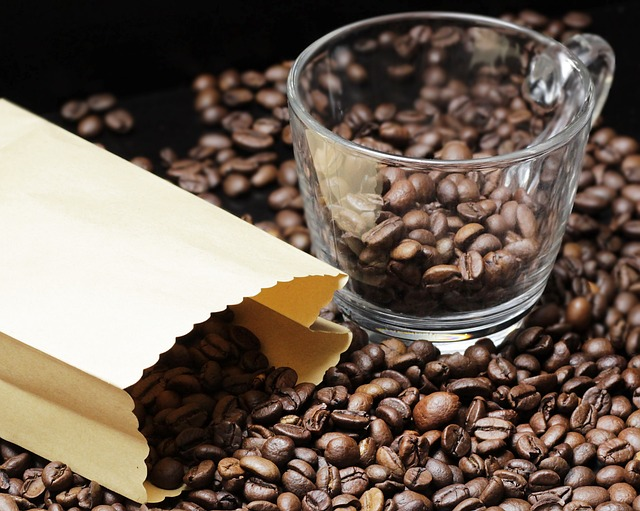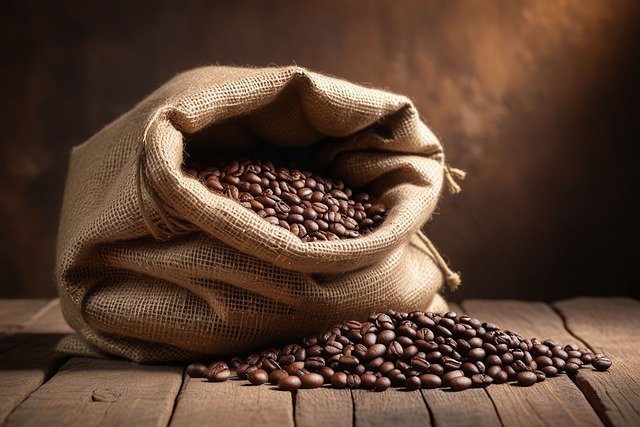
How Long Do Coffee Beans Last?
Share
Let's cut to the chase: roasted coffee beans can last from a few weeks to several months, depending on how they are stored. Typically, they'll remain freshest for about 2-3 weeks after roasting if kept in a cool, dark place and in an airtight container.
Coffee is a beloved drink in over 66% of households in the US. And, many of us are so used to drinking coffee in short order that we forget that coffee beans, like other consumables, DO have a shelf life. Knowing how to store your coffee beans properly will make all the difference in maintaining the freshness and flavor you're looking for, morning after morning. That's one of the reason we use resealable bags with a degassing valve to help deliver the best bean experience possible to you! Find out for yourself right here.
In this article, we’ll explore how long coffee beans last, the best storage methods, and tips to avoid stale coffee beans.
Highlights
-
Proper storage can significantly extend the life of your coffee beans, regardless of whether it's pre-ground coffee or coffee beans.
-
Roasted coffee beans last longer than ground coffee. This is because more surface area with ground coffee beans allows for faster oxidation, meaning the coffee's natural aroma and flavor degrades more quickly.
-
Freezing coffee beans can be an effective preservation method, but you should consume it right after thawing to preserve the best flavor and experience fresh beans. Using airtight storage containers is crucial for maintaining freshness, too. Make sure they're not close to either sunlight or heat sources and consider using desiccant packs to absorb the moisture in the container.
How Long Do Roasted Coffee Beans Last? The Best Ways to Store Whole Bean Coffee

What really damages their quality is exposure to air, moisture, heat, and light.
To maximize freshness, store your coffee beans in a vacuum-sealed or airtight container in a cool, dark pantry. Avoid storing them in the refrigerator, as the humidity can cause them to deteriorate more quickly.
Tips to Prevent Stale Coffee Beans
The best thing you can do to avoid stale coffee beans is to be mindful of what you buy and how you store it. Here are some tips to keep your coffee fresh:
-
Try to Buy in Small Quantities: Purchase only as many coffee beans as you can consume within a couple of weeks. This also allows you to keep track of their roast date.
-
Always Use Airtight Containers: Store your freshly roasted beans in airtight containers to protect them from air and moisture.
-
Keep Away from Light and Heat: Store coffee beans in a cool, dark place to avoid degradation from light and heat.
-
Use Desiccant Packs: These are small bags that contain a few grams of silica gel. Silica gel absorbs the moisture in the air, helping to avoids degradation your coffee beans.
Do Roasted Coffee Beans Last Longer Than Ground Coffee?
The short answer here is that yes, roasted coffee beans generally last longer than ground coffee. Whole beans retain their freshness for a few weeks to a few months, while ground coffee starts to lose that fresh taste after just a few weeks.
This is mostly because grinding increases the surface area of the coffee that's exposed to air, accelerating the oxidation process. When oxygen comes in contact with coffee, it reacts with the complex molecules that form its natural oils and organic compounds, leading to a loss of flavor and aroma.
We've talked a lot about this in our piece on canned coffee, which is generally pressurized with nitrogen to avoid contact with air.
How to Tell if Your Coffee is Fresh
Fresh coffee beans have a rich aroma and a vibrant flavor. You can generally judge coffee freshness by looking at its roast date, but even freshly roasted coffee beans can degrade very quickly in the wrong conditions. Here are some signs that your coffee might be past its prime:
-
Stale Smell: Fresh coffee should have a pleasant, strong aroma. Some of the aromatic compounds in coffee can degrade in just over two weeks!
-
Flat Taste: Coffee beans that taste bland, sour, or have lost their complexity are likely stale. Expired beans have lost most of their good flavors and will generally feel extremely bitter.
-
Oily Surface: While some oil on the surface of the beans is normal, an excessive amount can indicate old beans that have started to go rancid.
-
Degassing: After the roasting process, coffee releases carbon dioxide and "fills up" with oxygen. You'll notice it because regardless of the brewing methods, when fresh coffee beans are brewed, they "bloom", creating a kind of creamy layer on top. Expired coffee beans won't do that.
Best Practices for Storing Freshly Ground Coffee

If you prefer to grind your coffee beans at home, we know that based on research studies it's best to grind only what you need for immediate use. However, if you need to store ground coffee, use an airtight container and keep it in a cool, dark place. Avoid large quantities and consume it within a week for the best flavor.
Can you freeze coffee beans?
Yes! Freezing coffee beans can help extend their shelf life by slowing down the oxidation process. It's best to freeze whole coffee beans and consume them just after thawing. Any frozen coffee beans can be turned into drinking coffee afterward, but they won't last long after they've been thawed.
Here are some tips so your coffee beans stay fresh in the freezer:
-
Use an Air-tight Container: Ensure the beans are in an airtight container, even a vacuum sealed bag, to prevent moisture and odors from affecting them. Oils and fats bind to aromatic molecules, so failing at this step could mean your coffee beans will taste of whatever other things you have in the freezer.
-
Thaw Properly: Allow the beans to reach room temperature before grinding to prevent condensation and moisture accumulation. If you've frozen roasted coffee, consume it as soon as possible.
-
Let them dry: If your beans have accumulated moisture, make sure to dry them off before consumption.
Best Storage Containers for Coffee Beans
Either for freezing or just general storage, you want to find the right storage container. There's no need to spend crazy amounts on designer pieces like many enthusiasts do. Just keep an eye out for storage containers that tick these boxes:
-
Airtight Seals: Containers with airtight seals prevent air and moisture from getting in. This can be anything from vacuum-sealed bags or ziplock bags to Tupperware.
-
Opaque Materials: Opaque containers block out light, which can degrade coffee quality. So avoid transparent containers and look for metal finishes or translucent plastic.
-
A One-Way Valve: Some containers have one-way valves that allow CO2 to escape without letting air in. This isn't mandatory, but 100% recommended if you can get it. It will preserve your roasted coffee beans for much longer than usual.
Tips to Ensure a Fresh Brew Every Time
Taking all of this into consideration, here are some extra tips to make good coffee
-
Buy Fresh, Roast-Dated Coffee: Look for roast dates on the packaging and buy the freshest beans possible.
-
Grind Just Before Brewing: Grinding your beans just before brewing maximizes flavor. Coffee loses flavor even just 15 minutes after grinding, so keep that in mind.
-
Use Clean Equipment: Ensure your coffee maker and grinder are clean to avoid stale residue affecting your brew.
-
Mind the water: Use filtered water that doesn't contain chlorine, and make sure the water isn't extremely hot. The ideal temperature for brewing coffee is about 195°F to 205°F (about 90°C to 96°C). Water that is too hot will extract compounds that are too bitter for most drinkers.
FAQs on Storing Coffee Beans
Can you store coffee beans in the fridge?
Briefly speaking, not really. Storing coffee beans in the fridge is not recommended. The humidity and fluctuating temperatures can cause condensation, leading to mold growth and other unpleasant situations. Keep them in a cool, dry place. If you don't have space, always opt for freezing the beans instead of keeping them in the fridge.
How long does coffee beans last?
Coffee beans stay fresh for about 2-3 weeks after roasting if stored properly in an airtight container in a cool, dark place. This doesn't mean they'll go completely stale in that time frame though: they can last several months in a drinkable state, but just won't taste as good.
Are old coffee beans safe to drink?
Unless they've gone moldy, old coffee beans are safe to drink, but they may not taste as great. Raw coffee beans or coffee berries will go bad more quickly.
When you drink some of the best coffee beans like our best sellers like our Peru or Mexico, the beans won't last long enough to go bad!

